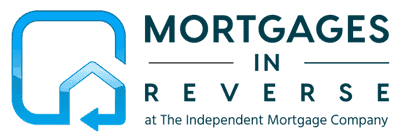Navigating the world of Vancouver real estate can be like trying to find a needle in a haystack, particularly when it comes to leveraging home equity with reverse mortgages.
You've possibly heard of reverse mortgages as a tool to tap into your home's equity, but you might be wondering how this works, and more importantly, if it's the right fit for you.
Well, hold your horses; we're about to explore this complex yet potentially beneficial financial strategy. Let's unmask this mystery together, shall we?
Key Takeaways
- Reverse mortgages can turn home equity into income, providing a unique retirement planning tool for Vancouver homeowners aged 55+.
- The amount one can borrow in a reverse mortgage is determined by the value and equity of the home.
- Despite benefits like tax-free income and no monthly payments, reverse mortgages carry risks, including higher interest rates and default risk.
- Case studies show varying outcomes of reverse mortgages, highlighting the importance of considering personal circumstances, property taxation, and neighborhood trends.
Understanding Home Equity
Often, understanding home equity is pivotal to maximizing the potential of your real estate investments in Vancouver. You see, equity calculation isn't just about subtracting what you owe on your mortgage from your property's current market value. It's a financial strategy to tap into the wealth you've built in your home.
Here's how it works: as you pay down your mortgage, you're steadily increasing your home's equity. This, coupled with property appreciation, can significantly boost your net worth over time. So, if you bought a property for $500,000 and its value appreciates to $600,000, you've just gained $100,000 in equity.
But remember, property appreciation isn't always a sure bet. Market trends, neighborhood developments, and economic factors can affect your property's value. Hence, monitoring these elements is crucial to optimizing your equity growth.
Furthermore, you can leverage this equity for future investments, renovations, or emergencies. It's like having a financial safety net built into your home.
The Basics of Reverse Mortgages
Diving into the world of reverse mortgages, it's important for you to grasp how this financial tool can unlock the equity you've built in your Vancouver property, turning it into a steady source of income. Unlike a traditional mortgage where you're making payments to a lender, a reverse mortgage allows you to receive payments, using your home's equity as collateral.
Now, let's delve into the 'Eligibility Criteria'. You must be at least 55 years old, own a home in Vancouver, and live in it as your primary residence. Additionally, the home's value and the amount of equity you've accumulated play a significant role in the amount you can borrow.
Choosing from the various 'Reverse Mortgage Providers' requires careful analysis. While several institutions offer this service, rates, fees, and terms can differ substantially. It's crucial to consider factors like the provider's reputation, their customer service, and the flexibility of their loan options.
Benefits of Reverse Mortgages
Having understood the eligibility criteria and how to choose a provider, it's essential to examine the benefits that reverse mortgages can offer you as a homeowner in Vancouver. Reverse mortgages provide a unique retirement planning tool, offering a way to tap into your home equity without the need to move or sell.
The first major advantage is the potential for tax-free income. This is where the tax implications come in. Since the money received from a reverse mortgage isn't considered income, it's tax-free, enhancing your financial flexibility.
Second, reverse mortgages provide an opportunity to defer social security payments, thereby increasing your benefits in the long run. By leveraging your home equity early in retirement, you can delay taking Social Security until a later age, resulting in higher monthly payments.
Finally, it's a lifeline for cash-strapped seniors who own a home but have limited income sources. With a reverse mortgage, you can maintain your lifestyle without worrying about monthly mortgage payments as the loan repayment is deferred until you no longer live in your home.
All these benefits make reverse mortgages a strategic financial tool, particularly in the costly Vancouver real estate market.
Risks Involved in Reverse Mortgages
While reverse mortgages offer numerous benefits, it's crucial that you're also aware of the potential risks involved in this financial strategy. The first risk to consider is the default risk. You're still responsible for property taxes, homeowners insurance, and home maintenance. If you fail to meet these obligations, you could face a default, resulting in potential foreclosure.
Interest rates are another significant risk. Reverse mortgages typically have higher interest rates compared to traditional mortgages. These rates are often variable, meaning they can increase over time. This could drastically inflate the total amount you owe, eating into your remaining home equity.
Furthermore, if the housing market dips and your home's value decreases, you could end up owing more than your home is worth, a condition known as being 'underwater'. This could put you in a precarious financial situation, particularly if you plan to pass your home on to your heirs.
Lastly, reverse mortgages can be complex, and there's a risk of falling prey to scams or unscrupulous lenders if you don't thoroughly understand the terms. Therefore, it's vital to do your homework and consult with a trusted financial advisor before moving ahead with a reverse mortgage.
Case Studies: Vancouver Homeowners
Let's take a closer look at a few Vancouver homeowners who've leveraged their home equity, effectively illustrating the various financial outcomes of this strategy.
Consider Mr. and Mrs. Lee, who live in a rapidly appreciating neighborhood. They've unlocked their home equity through a reverse mortgage, which lowered their monthly expenses and increased their disposable income. However, they've had to be mindful of Property Taxation that comes with their property's increased value.
Then, there's Ms. Johnson, a single retiree. She took a reverse mortgage on her home in a slower-growing neighborhood. The increased income helped her maintain her lifestyle, but she's found herself vulnerable to Neighborhood Trends, with slower property value growth leaving her with less equity over time.
Finally, the Thompsons, an older couple, opted for a reverse mortgage to fund their grandchild's education. They've seen their home equity decrease, but believe the investment in their grandchild's future was worth it.
These cases highlight the financial implications of leveraging home equity in Vancouver. They underscore the importance of considering factors like Property Taxation and Neighborhood Trends when deciding if a reverse mortgage is the right option for you.
Frequently Asked Questions
What Are the Eligibility Criteria for Obtaining a Reverse Mortgage in Vancouver?
To qualify for a reverse mortgage in Vancouver, you must be 55 or older and own your home. There's an application process that includes an appraisal of your property.
But, don't forget the reverse mortgage risks: it could decrease your estate value and increase your debt. It's crucial to fully understand these potential drawbacks before going ahead.
Consult with a financial advisor to weigh the pros and cons tailored to your situation.
How Does a Reverse Mortgage Affect a Homeowner's Taxes in Vancouver?
A reverse mortgage doesn't increase your income taxes in Vancouver. One common misconception is that it's taxable income. However, it's actually a loan advance, not income. So, you're not taxed when you receive the money.
But remember, the interest added to the loan balance isn't deductible until it's actually paid. Make sure to consult with a tax professional to understand all tax implications and to avoid any misunderstandings.
Can a Homeowner With a Reverse Mortgage Move to Another Home in Vancouver?
Yes, you can move to another home in Vancouver with a reverse mortgage. However, relocation implications are significant.
The mortgage isn't transferable, so you'll need to pay off the loan when you move. You can do this by selling your home, using other funds, or getting a new reverse mortgage on your new home.
It's crucial to weigh the financial implications carefully.
Are There Any Specific Vancouver Based Lenders That Specialize in Reverse Mortgages?
You're asking about Vancouver lenders specializing in reverse mortgages. Absolutely, there are! They offer competitive reverse mortgage rates, but remember to evaluate the pros and cons.
Some excel in customer service, others in low interest rates. It's all about finding the right fit for your financial needs and circumstances.
Don't forget to consider the long-term impact of a reverse mortgage on your home equity. Make sure you're making a financially sound decision.
How Do Reverse Mortgages Compare With Other Home Equity Loans in the Vancouver Market?
When comparing reverse mortgages with other home equity loans in Vancouver, you'll notice differences. Reverse mortgage risks involve higher interest rates and fees, but they offer unique benefits.
You don't have to make regular loan repayments, providing financial flexibility. This contrasts with traditional home equity loans, where you're required to pay monthly.
It's a trade-off between higher costs and payment flexibility, so consider your financial situation carefully.

